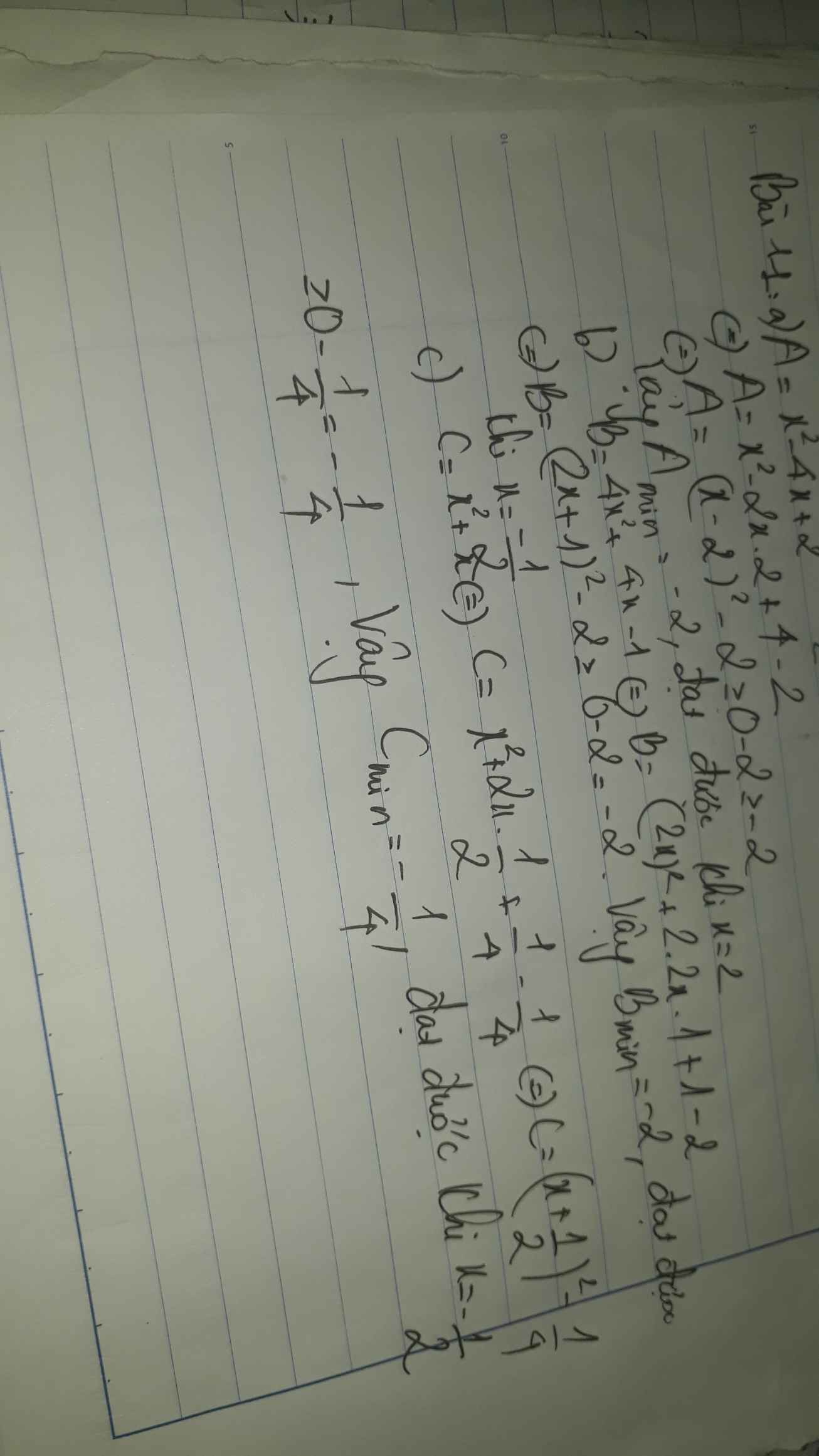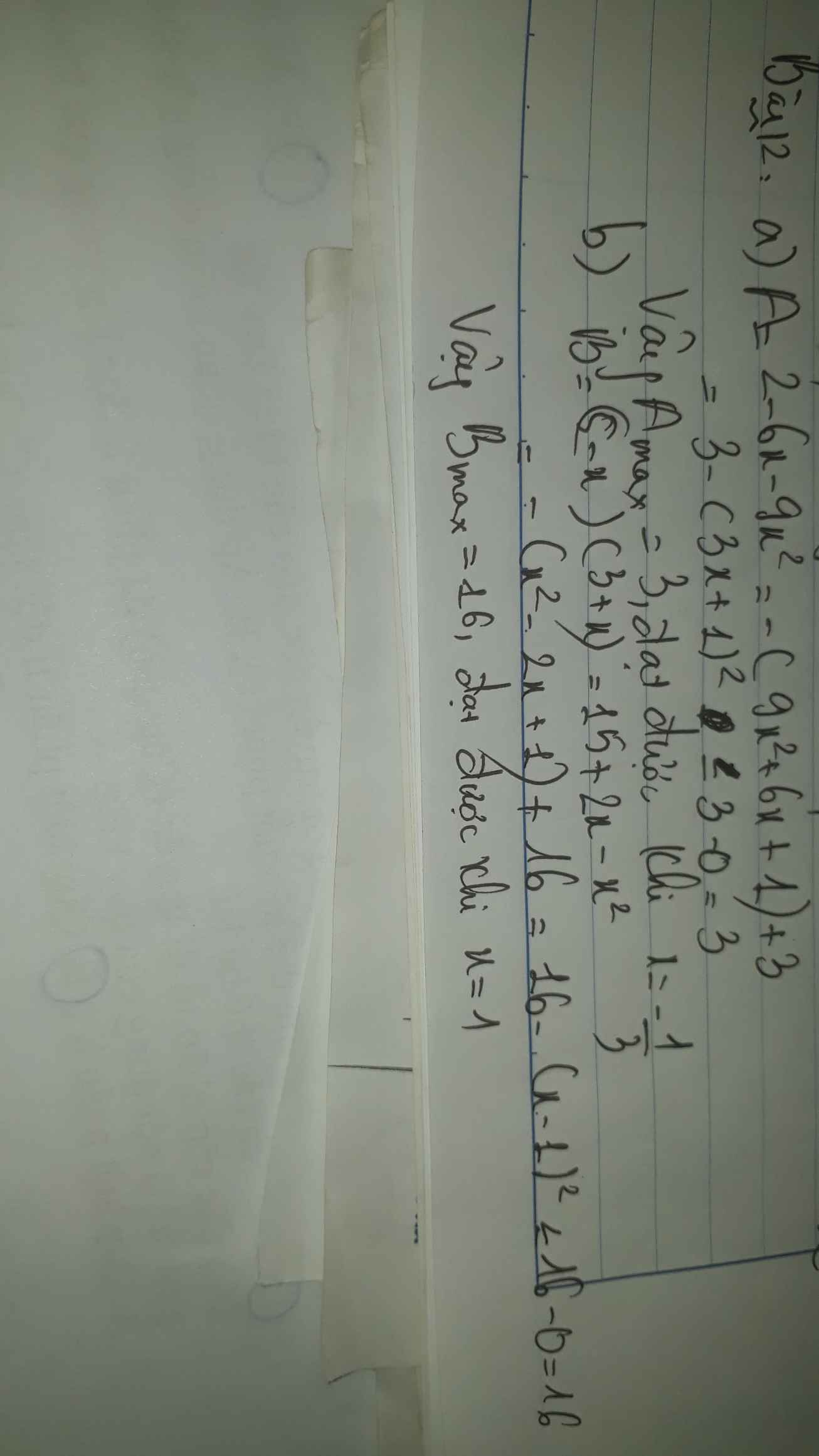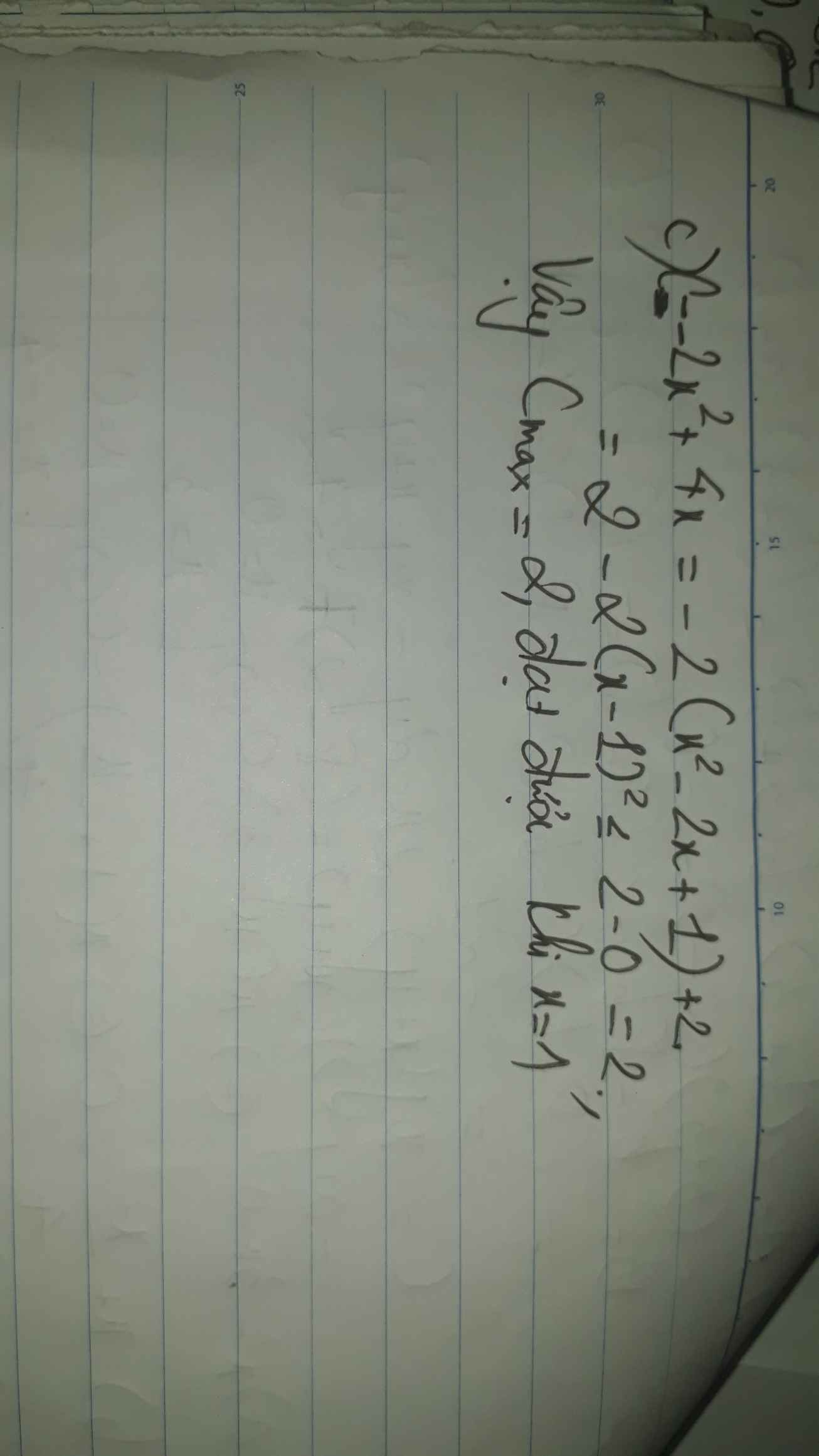
Hãy nhập câu hỏi của bạn vào đây, nếu là tài khoản VIP, bạn sẽ được ưu tiên trả lời.


c)x2-2x+2
=x2-2x+1+1
=(x-1)2+1
=(x-1)2-i2
=[(x-1)-i][(x-1)+i
=(x-1-i)(x-1+i)
b)9x2-6x+5
=9x2-3x-3x+5
=3x(3x-5)-5(3x-5)
=(3x-1)2
c)30-20x+4x2
chịu ,khó was ! k lm dc !!!!!!!!!!!!!!!!!!

Bài 1:
a) Ta có: \(A=-x^2-4x-2\)
\(=-\left(x^2+4x+2\right)\)
\(=-\left(x^2+4x+4-2\right)\)
\(=-\left(x+2\right)^2+2\le2\forall x\)
Dấu '=' xảy ra khi x=-2
b) Ta có: \(B=-2x^2-3x+5\)
\(=-2\left(x^2+\dfrac{3}{2}x-\dfrac{5}{2}\right)\)
\(=-2\left(x^2+2\cdot x\cdot\dfrac{3}{4}+\dfrac{9}{16}-\dfrac{49}{16}\right)\)
\(=-2\left(x+\dfrac{3}{4}\right)^2+\dfrac{49}{8}\le\dfrac{49}{8}\forall x\)
Dấu '=' xảy ra khi \(x=-\dfrac{3}{4}\)
c) Ta có: \(C=\left(2-x\right)\left(x+4\right)\)
\(=2x+8-x^2-4x\)
\(=-x^2-2x+8\)
\(=-\left(x^2+2x-8\right)\)
\(=-\left(x^2+2x+1-9\right)\)
\(=-\left(x+1\right)^2+9\le9\forall x\)
Dấu '=' xảy ra khi x=-1
Bài 2:
a) Ta có: \(=25x^2-20x+7\)
\(=\left(5x\right)^2-2\cdot5x\cdot2+4+3\)
\(=\left(5x-2\right)^2+3>0\forall x\)
b) Ta có: \(B=9x^2-6xy+2y^2+1\)
\(=9x^2-6xy+y^2+y^2+1\)
\(=\left(3x-y\right)^2+y^2+1>0\forall x,y\)
c) Ta có: \(E=x^2-2x+y^2-4y+6\)
\(=x^2-2x+1+y^2-4y+4+1\)
\(=\left(x-1\right)^2+\left(y-2\right)^2+1>0\forall x,y\)

\(\dfrac{2}{36a^2b^2-1}=\dfrac{2}{\left(6ab-1\right)\left(6ab+1\right)}\\ \dfrac{1}{6ab+1}=\dfrac{6ab-1}{\left(6ab-1\right)\left(6ab+1\right)};\dfrac{1}{6ab-1}=\dfrac{6ab+1}{\left(6ab-1\right)\left(6ab+1\right)}\)
\(\dfrac{x}{x^3-27}=\dfrac{x\left(x-3\right)}{\left(x-3\right)^2\left(x^2+3x+9\right)}\\ \dfrac{2x}{x^2-6x+9}=\dfrac{2x\left(x^2+3x+9\right)}{\left(x-3\right)^2\left(x^2+3x+9\right)}\\ \dfrac{1}{x^2+3x+9}=\dfrac{\left(x-3\right)^2}{\left(x-3\right)^2\left(x^2+3x+9\right)}\)
\(\dfrac{x^2-x}{x^2-1}=\dfrac{x\left(x-1\right)}{\left(x-1\right)\left(x+1\right)}=\dfrac{x}{x+1}=\dfrac{x\left(x+1\right)}{\left(x+1\right)^2}\\ \dfrac{3x}{x^3+2x^2+x}=\dfrac{3x}{x\left(x^2+2x+1\right)}=\dfrac{3}{\left(x+1\right)^2}\\ 2x=\dfrac{2x\left(x+1\right)^2}{\left(x+1\right)^2}\)




đầu bài là gì vậy? có phải là chứng minh phương trình vô nghiệm không? nếu phải thì đây là lời giải:
a) \(x^2-2x+2\)
\(=x^2-2x+1+1\)
\(=\left(x-1\right)^2+1\ge0\)
vậy phương trình vô nghiệm.
b) \(9x^2-6x+5\)
\(=\left(3x\right)^2-6x+1+4\)
\(=\left(3x+1\right)^2+4\ge0\)
vậy phương trình vô nghiệm.